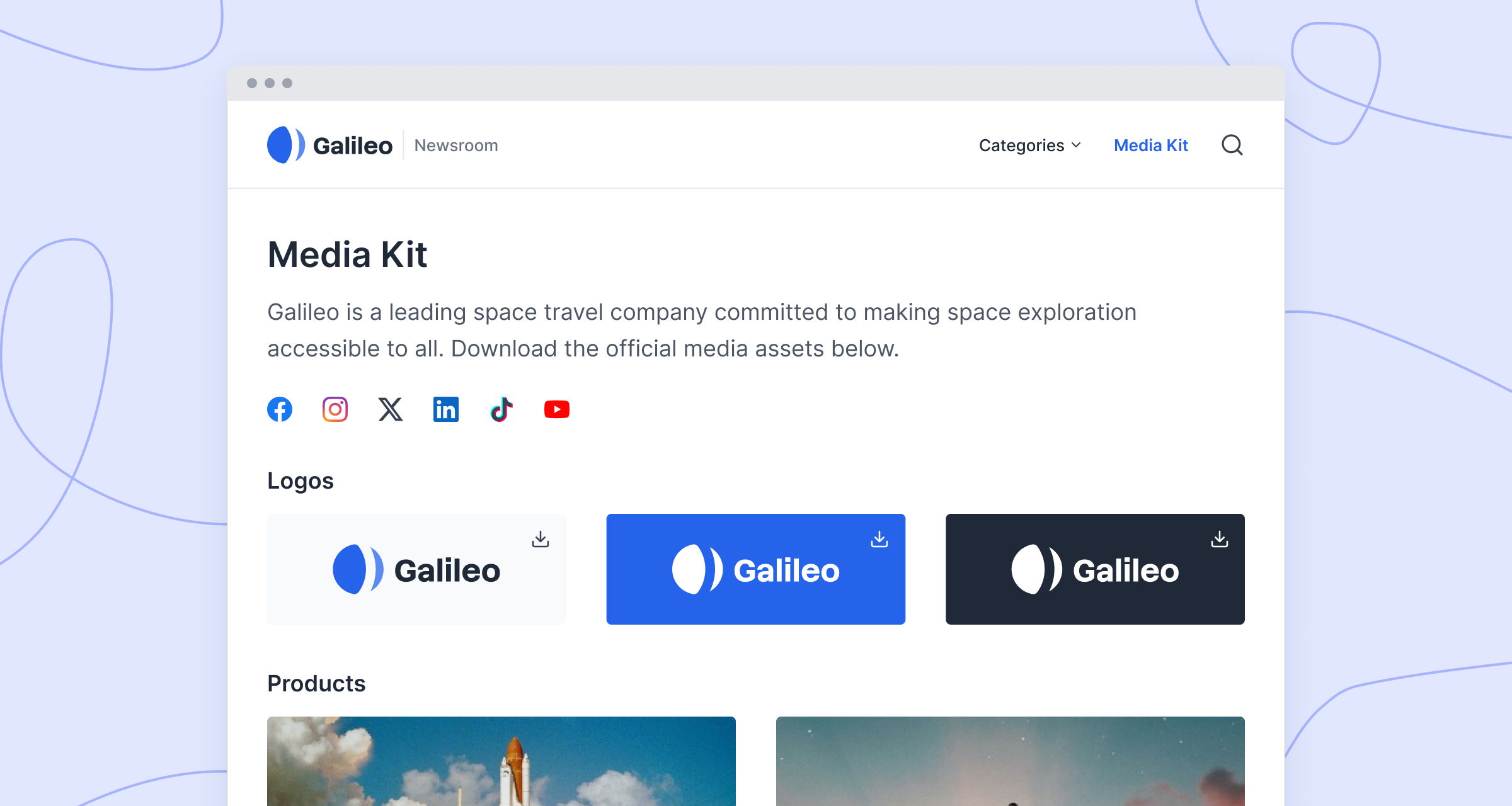What is a newswire and how does it work?
Breaking down the PR newswire.
Ah, newswires. Once a lauded institution of the PR world, newswire services are sort of… still around. The efficacy of newswires is a hotly debated topic in the PR and marketing world. Some insist that the service is dead, others claim it still works phenomenally, and still others are like, "what's a newswire?"
Let's discuss what a public relations newswire is, how it works, and if it's still relevant in these harrowing times.
Before we explain what newswires are, let's make things a little more confusing. There are actually two kinds of newswire services that are different enough to warrant an explanation but similar enough to be annoying.
First, there's the news newswire. This is where an organization (like the Associated Press) writes articles and distributes them across a network of partners around the world. The Associated Press, for example, has over 1,300 partner agencies that receive and redistribute news stories through their own newspapers, magazines, etc. These newswires are cool, but not really what this article is about.
The other type of newswire is a PR newswire, which is the star of this article. So traditional newswires and PR newswires function separately but similarly. Both are aimed at aggregating and distributing information, but the information they share and the audiences are pretty different.
A PR newswire is a service that takes paid press release submissions from different PR agencies and businesses and aggregates them into one central location through an independent source.
Okay, but why?
See, before the internet, journalists had to really search for stories. There wasn't TikTok drama to cover 24/7, and there weren't endless sources of interconnected global news available all day, every day. Was it better? Who's to say?
This lack of traumatic incessant raging global news meant that journalists needed a way to find stories. Inversely, PR departments and agencies needed a way to get their stories to the press. A business or agency would have a juicy piece of information that they wanted eyes on but no way to scream it out to the rest of the world (obviously this was before Twitter).
Thus, the newswire service was born. People would send their hottest stories to a newswire, and the newswire would turn around and distribute it to their network of journalists who are itching for a story. It was a flawless system that worked perfectly.
But then the internet was invented, and everyone could talk to everyone else literally all the time. Access to journalists no longer required a postage stamp or a fax machine.
This, of course, begs the question of whether or not newswires are still a necessary service in the modern age. When anyone can do a quick Google search and find 50 relevant publications and journalists to email directly, is there still a need to blast the PR to tons of (tenuously) appropriate people?
This brings us to our next question.
The short answer is: Maybe.
The even shorter answer is: No.
The accurate answer is: It depends.
Newswires are obviously still used by PR people around the world, but there is some debate about whether these newswires are actually effective or if they are a rapidly dying institution. One agency asked 80 tech journalists if they still use newswire services, of which 37% indicated that they check them daily, and 30% of journalists indicated that they use them occasionally.
A 2022 study showed that a majority of journalists receive at least 50 pitches per week, with 24% receiving 100+ each. The need for journalists to actively scour the internet for stories is rapidly diminishing as the pitches are increasingly going directly to their inboxes.
Obviously, different journalistic fields will prioritize different methods, but it's fair to say that the bulk of the news stories that get published are not coming straight off the PR newswire presses. And when it comes to meatier stories and features? Forget about it. Any long-ish piece for a reputable publication (i.e. journalism-journalism) is not something that can be plucked off a PR newswire.
Generally, newswires have largely been eclipsed by cheaper, more targeted methods.
So, let's take a (reasonably) unbiased look at the pros and cons of using PR newswires.
Pros of using a newswire:
- They're longstanding institutions in the PR world
- Some newswire services will send regular email digests, so journalists don't have to sift through hundreds of separate pitches and can instead sift through a single list of hundreds of press releases
- Using a newswire is a lot easier than generating a curated media list since you just need to pay a fee and click "upload"
- Some newswires will provide analytics data
Cons of using a newswire:
- When reviewing Newswire's pricing, you will notice that the good ones are expensive, with each release costing hundreds of dollars (or more)
- The formatting is limited and typically restricted to plain text
- Fewer journalists than ever use them to find actual stories than they did in the past
- Press releases are presented along with literally all of the other stories on the wire that are vying for journalists' attention, so the vast majority get overlooked
We asked a bunch of PR, marketing, and communications people if newswires are still relevant to their workflow, and we got quite a range of responses. Note that they're all from the POV of the people doing the sharing, not the journalists picking up the story, so do not paint a beautiful and holistic picture.
While some would argue that PR newswire services are a thing of the past, I think they’re still relevant, particularly for PR agencies.
At KNB Communications, we still utilize PR newswire services to distribute press releases; however, there is a time and a place for it. The clear benefit to a newswire service is its reach. With the potential of reaching 100,000 media outlets nationwide, the sheer volume of a PR distribution service exceeds the personal contacts that any one PR agency might have.
One of the primary cons of using a PR newswire service is the cost, which can run over $1,000 per press release. The key is to be strategic about when it’s in the client’s best interest to pay for this service.
Newswire press releases that are the most successful are typically stories that gauge a nationwide interest, such as a national campaign or major financial win. If there is a small company with regional news to share, it would not make sense to invest that much in a distribution service.
Publishing a press release on the newswire is still relevant and can provide value, but the purpose has changed a bit. In the past, people who published a press release wanted to have their release read, and also potentially convince a journalist to write about it.
Now, press releases serve a different purpose. For the most part, they are now used for SEO purposes. The links included in the release will become valuable when the distribution company can have it published on high-domain websites. The link juice that can be gained is worth the money of publishing a press release via the newswire.
If someone reads the release, or a journalist sees it and wants to write about it, that’s even better. But the main component of PR newswires these days is the SEO benefits you get from this strategy.
To put it bluntly: No, I don't think PR newswires are still relevant. They charge huge amounts of money for what amounts to a 'spray and pray' mass-share of a release, sometimes offering to 'sweeten the deal' by syndicating the release across a network of low-value news sites that nobody actually reads. Having tested a few at intervals over the years I'm confident that budget is better spent on taking the time to find the right targets and pitch them directly.
I've had journalists from national newspapers ask for exclusives on stories that were pitched manually after newswire distribution tests failed to get any pickup, where they had seen neither the original share of the release nor any of the automated 'coverage' and so hadn't realised it was too late for an exclusive to be honestly offered. PR newswires don't seem to add value if you want brand awareness and they certainly don't add value if you're looking for links!
Journalists nowadays receive anywhere from 50-500 pitches a day from PR people - very few that we speak to read wires of any kind now. A comprehensive target list and a strong pitch and press release can get you plenty of great coverage without the need to waste money on a newswire.
As I tell all clients who ask me to write a news release and send out via online distribution platforms:
No one is really reading these in terms of having this news delivered to an inbox.
However, you get a nice permalink to share with your contacts and on social networks, to post to your website, and a hit online when someone searches for your company.
In other words – it serves as an online credibility tool.
We've used several different PR newswire services this year (2022) such as Cision (PR News Wire), Business Wire, and Brand Featured.
Our results have varied between the three, but from our experience – newswire services are quickly becoming outdated and ineffective. Cost-wise they are very expensive (except for Brand Featured) and their pickup/engagement metrics are misleading.
Developing relationships with journalists in specific niches through cold pitching has had better results for us than these expensive options.
Compare Business Wire vs PR Newswirefeatures and pricing to find the best fit for your team.
So, if people aren't using PR newswires as much as they used to, what are they doing? Well, seeing as the internet is positively lawless, it's safe to say that people are just doing too much.
Ultimately, however, it seems like owned media and curated campaigns are the way to go these days.
Uh oh, jargon alert. 🚨
What do those things mean?
Essentially, owned media is content (like a press release) that you specifically control on your own website, domain, etc. It's not social media, which is housed (and effectively controlled) by another company, like Twitter, Facebook, or, yes, even newswires. That's not to say a good social media presence can't bolster and support owned media. But should you post your PR directly into Tiktok and nowhere else? Maybe not.
When you house your own media, say on a press room or website, you have the freedom and flexibility to share the news the way you want to. This means you can design it how you like and add plenty of stunning images and embed multimedia, safe in the knowledge that it isn't going to be buried by algorithms eager to make Elon a cool billion. Owned media also has the added benefit of boosting your brand's visibility on major search engines (like Yahoo and Bing).
Curated campaigns are emails that you send to a carefully selected group of journalists with whom you've (ideally) developed a great working relationship. This email will often include a link to the press release where journalists can review your PR and assets, as well as download image files and other important info for their news story.
Obviously, this requires a bit more work than just throwing a few plain-text lines into a PR newswire, forking over $1,000, and praying to the Exposure Gods. But this method has become the de facto strategy for PR folks who prefer to think strategically.
PR newswires are kinda polarizing. Some swear by them, some insist they're a relic of the past, and others are somewhere in between. But something everyone seems to agree on is that newswires should only ever be part of an overall strategy and never the star of the distribution show.
If you're keen to learn more about PR distribution strategies, well, we have some resources for you!
And if you're thinking to yourself, "that's all well and good, but how can I ever possibly find a way to house my own content? Sounds impossible!" Well, that's kind of Prezly's whole thing. We help our users create dazzling online press rooms and websites where they can showcase their news, send campaigns, and track SEO and PR analytics all from one easy-to-use tool.
Want to try it for free? ⬇️
Prezly – software for modern PR teams
Write & publish brand stories in an online newsroom
Send email campaigns, pitches & newsletters
Manage all your contacts in a single CRM, with easy import & export
Measure performance with analytics & built-in media monitoring



